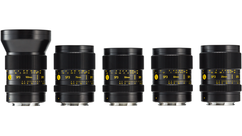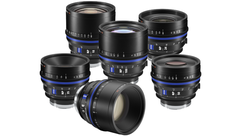Overview
The NiSi Cinema 4" x 5.65" Linear Polarizer Filter uses the same high-quality optical glass as the rest of the NiSi line to reduce the reflection on non-metallic surfaces and reveal the original color and texture of an object. Coupled with Nitto Polarizer film, this results in a filter with a 99.9% polarization rating. Each filter is precision ground and polished after the film is applied to ensure maximum sharpness. The edges of the filter are resin-sealed to keep moisture from entering, improving durability.
This polarizer can also help to enhance the saturation of colors beyond that of normal vision, and is the most effective type of filter to improve the tone of the (not easily imitated in post-production). The NiSi Linear Polarizer Filter helps to reduce reflections and glare by filtering out the light on non-metallic surfaces. This light is often seen as a haze in landscape scenes. The linear polarizer passes light through the filter evenly which reduces this haze-like effect and a noticeable reduction of glare and reflections from non-metallic surfaces and an increase in the saturation of skies and foliage.
NOTE: Due to how the light is broken down and filtered with a linear polarizer, in-camera autofocus and exposure accuracy become skewed during use. This filter is recommended when not using in-camera exposure metering or autofocus.
The NiSi 4x5" Range is compatible with all leading brands of matteboxes that fit the 4" x 5.65" standard, and also conforms with 4mm thickness that allows each filter to fit into filter cages or slot into cageless designs. A leatherette pouch is included for storage and transport.
Features:
- +1 to 1.5 Stops
- Helps to Eliminate Reflections and Glare
- Reduces Haze in Landscapes
- Greater Color & Tonal Saturation
- Optical Glass Construction
- Leatherette Pouch Included
What's in the Box
- NiSi Cinema 4" x 5.65" Linear Polarizer Filter
Specifications
Key Highlights
- 4" x 5.65" Linear Polarization Filter
- Helps to eliminate reflections & glare
- +1 to 1.5 Stops light reduction


















